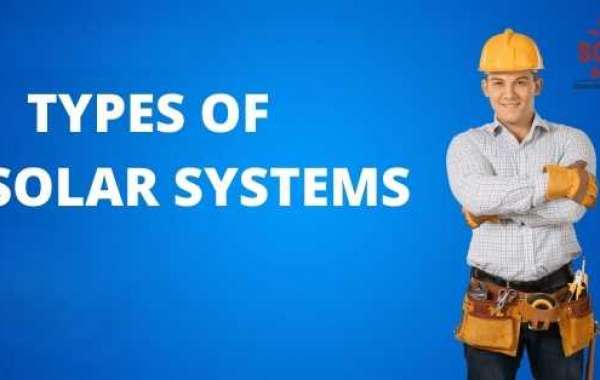Solar energy has emerged as a leading renewable energy source, offering a sustainable and environmentally friendly alternative to traditional fossil fuels. As technology advances, various types of solar systems have been developed to harness sunlight and convert it into usable electricity. Let's delve into the different types of solar systems available today:
1. ɢʀɪᴅ-ᴛɪᴇᴅ ꜱᴏʟᴀʀ ꜱʏꜱᴛᴇᴍꜱ
Grid-tied solar systems, also known as grid-connected or grid-interconnected systems, are the most common type of solar installation. These systems are connected to the utility grid, allowing excess energy generated by the solar panels to be exported to the grid. Grid-tied systems typically do not incorporate energy storage, relying on the grid for power supply during periods of low solar production.
- Advantages: Excess energy can be sent back to the grid, often resulting in credits on your electricity bill.
- Disadvantages: They do not provide power during a grid outage unless paired with a battery backup.
2. ᴏꜰꜰ-ɢʀɪᴅ ꜱᴏʟᴀʀ ꜱʏꜱᴛᴇᴍꜱ
Off-grid solar systems are designed to operate independently of the utility grid. These systems are equipped with battery storage to store excess energy generated during sunny periods for use when sunlight is not available, such as during the night or on cloudy days. Off-grid systems are commonly used in remote areas where grid connection is impractical or unavailable.
- Advantages: They provide power in remote areas where there is no access to the grid.
- Disadvantages: They require a significant battery storage system to store energy for use during times when the sun is not shining.
3. ʜʏʙʀɪᴅ ꜱᴏʟᴀʀ ꜱʏꜱᴛᴇᴍꜱ
Hybrid solar systems combine the features of grid-tied and off-grid systems, offering the flexibility of both. These systems are connected to the grid but also incorporate battery storage for backup power during grid outages or to maximize self-consumption of solar energy. Hybrid systems optimize energy usage by intelligently switching between grid power, battery storage, and solar generation based on demand and resource availability.
- Advantages: They can store energy in batteries and also send excess energy back to the grid.
- Disadvantages: They can be more expensive due to the need for both inverters and batteries.
ᴄᴏɴᴄʟᴜꜱɪᴏɴ
The variety of solar systems available today offers consumers a range of options to suit their energy needs and preferences. Whether you're looking to reduce your carbon footprint, save on energy costs, or achieve energy independence, there's a solar solution to meet your requirements. By harnessing the power of the sun, solar systems contribute to a more sustainable and resilient energy future.
In conclusion, the diverse types of solar systems highlight the versatility and potential of solar energy as a clean and renewable power source. From grid-tied installations to off-grid setups and solar water heating systems, each type offers unique advantages and applications. As technology continues to evolve, solar energy will play an increasingly vital role in powering our homes, businesses, and communities with clean and sustainable electricity.







